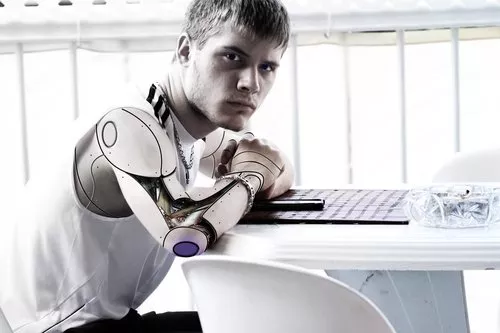New technologies have a very positive impact on our lives and our daily lives. However, there is a sector in which they are not very welcomeThe workplace. Although in many workplaces, machines facilitate the tasks of the employees, the creation and emergence of robots with highly developed characteristics, cause many humans to see their jobs falter.
There is no shortage of reasons for this, as the latest studies on the subject indicate that in 30 years robots will occupy at least half of the world's population. of today's jobs. This new era has already begun. A study by the International Federation of Robotics (International Federation of Robotics) claims that by 2019, 2.6 million industrial robots will be part of the workforce. In the domestic sphere, 31 million robots will help families with their homework.
However, robots will not dominate the world by a long shot. Humans are still needed, and although many jobs - 800 million by 2030 according to a study by McKinsey&Companywill be replaced by robotsIn the future, people will continue to develop the less mechanical functions.

Factories, are one of the examples that already use robots and their procurement will be expanded because of the mechanical tasks carried out on them. The production lines will be much faster and with a much more efficient minimum error rateThe machines are designed to perform specific functions.
In Spain, the data provided by the OECD are not so unfavourable. Only the 12% of jobs are in jeopardyand 50% of them will undergo changes. However, the latter does not imply a loss of employment, but rather a loss of jobs. humans and robots will work hand in hand.
Although the published studies reveal that many jobs will disappear, they also ensure the creation of new professions or functions. Robots can perform heavier tasks that pose a risk to humans, but these machines need to be equipped with a maintenance and repairswhich can only be carried out by human beings.
Among the jobs most at risk are: sales positions, financial and business operations, administration and offices, domestic and elderly care. It seems strange to go to a shop and not be served by a person, but more and more people are finding it difficult to find a job. supermarkets or shops with checkouts where one is responsible for passing on products and paying for them oneself. Financial institutions are also suffering from automation, as they How many times in the last year have you gone to a bank branch to carry out a transaction? You probably have your bank's app downloaded on your mobile phone and use it to access your account and make transactions.
The fourth industrial revolution is already a reality, but we don't have to be afraid of it. Revolutions have always meant improvements in jobs. Robots come to improve worker quality and facilitate the functions they perform.
